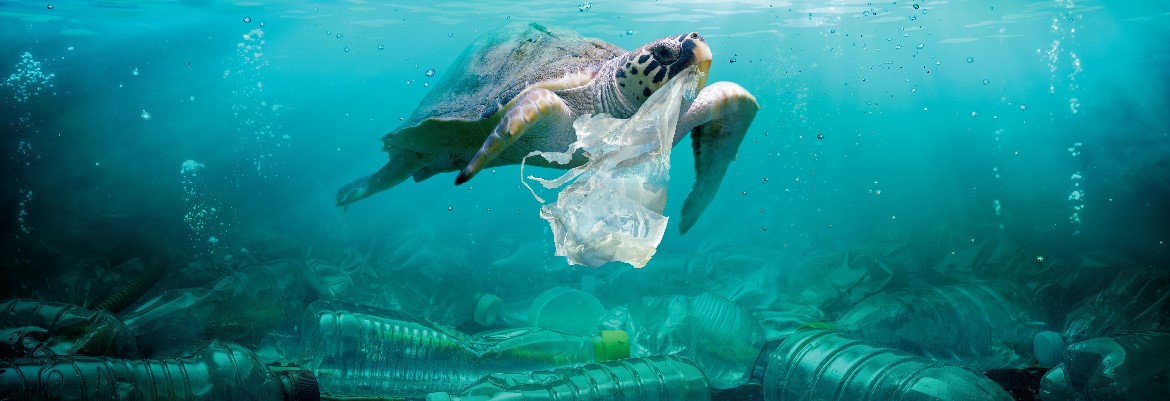Johan Rockström and colleagues in 2009 proposed 'Planetary Boundaries' to provide a 'safe operating space for humanity'. [1] Three boundaries were already over the safety limits: climate change; biodiversity loss; and the nitrogen cycle, and the situation has continued to worsen.
At the Paris climate change meeting (COP21) in 2015, governments agreed to try to keep global temperatures from rising 1.5oC above the pre-industrial temperature. [2] They consulted the Intergovernmental Panel on Climate Change (IPCC), who suggested that we have a very short time, maybe 10-12 years, to cut carbon emissions for this target. [3] Beyond 1.5oC scientists fear our climate system will become increasingly unstable, risking dangerous tipping points and runaway climate change.
The 2018 WWF 'Living Planet' report suggested population sizes of wildlife had decreased by 60 per cent globally between 1970 and 2014. [4] The Intergovernmental Science-Policy Platform on Biodiversity and Ecosystem Services (IPBES) report in 2019 found that around a million species were now threatened with extinction and that the health of ecosystems was seriously threatened. [5]
In addition to climate change and biodiversity loss, there are a host of other problems, such as soil degradation, that also need our attention. We reviewed this whole area in our 2015 book. [6]
Environmental impacts on human health
The third of the United Nations Sustainable Development Goals (SDG3) is 'Good Health and Well-Being', [7] but progress on this goal will be seriously impeded if the natural environment continues to be degraded. At present, air pollution likely represents the most significant global environmental health hazard. [8] It is estimated that in the outdoors environment, fine particulate matter is responsible for 4.2 million deaths a year, with ozone contributing an additional 254,000. Indoor air pollution from cooking and heating causes 3.8 million deaths, mostly in poorer countries.
In 2015 the Lancet Commission on Health and Climate Change was formed, stating that 'tackling climate change could be the greatest global health opportunity of this century.' [9] Climate change has both direct and indirect impacts on human health. Among the direct effects are increased heat stress, and the impacts of floods, droughts, wildfires, hurricanes and other storms. Indirect effects include increased air pollution (eg. from forest fires),the spread of diseases such as malaria as their vectors change in distribution, and food insecurity in famines. Often climate change leads to displacement and migration, which can be very hazardous for those affected.
There is increasing evidence that climate change can lead to mental ill-health, both in those directly affected and in those pondering a bleak future: 'climate change anxiety'.
Finally, climate change is likely to lead to increased political tensions and potentially major wars, with untold suffering and health implications.
Perhaps the most obvious medical reason for protecting biodiversity is because it has provided medicines in the past and has the potential to do so in the future. [10] Many medicines are originally derived from plants. So, digoxin and digitoxin originally came from foxgloves and aspirin came from willow. The worry is that drugs which may help in treatments for cancer or AIDS may be lost as species go extinct before they are investigated. In the longer term, there are fears that the loss of biodiversity may lead to the collapse of ecosystems, and this would undoubtedly be bad for human health.
In conclusion, space does not allow us to consider all the environmental problems and their impacts, but it is undoubtedly the case that almost any that we might consider will have either direct or indirect effects on human health.
Starting points in ethics
Medical and environmental ethics gravitate towards different natural starting points. Medical ethics are anthropocentric, understandably focused on humans and the medical implications of a wide range of factors, including environmental impacts on human health.
The environment is more likely to be perceived as an external issue, though one that can have considerable implications, for example, with pollution. Because the environment is not the focus of attention, action towards it will often be to mitigate possible difficulties or enhance potential benefits.
Environmental ethics have the natural environment as the primary focus of concern. These ethics tend to be either 'ecocentric' where the ecosystem is the primary focus, or 'biocentric', where each living creature is seen to have intrinsic value. These ethics have a capacity for understanding potential positive and negative impacts on all planetary life, including humans, and this can have enormous potential for resolving complex environmental challenges. Their weakness can be in putting the right level of priority on the complexity of human concerns alongside environmental ones.
Human need can be externalised and ways found to mitigate difficulties that impact on the environment rather than tackling the fundamental causes. For example, where poverty pushes communities to degrade their environment, financial incentives to protect it can be effective in the short term but for long term benefit, the roots of human poverty need to be tackled. When we seek to combine medical and environmental ethics, we need to find a fresh approach.
A Christian approach is to be theocentric, seeking to act in a way that honours our creator God. [11] Genesis 1 is a helpful starting point for such a theocentric ethic. Here the relationships between God, people and the rest of God's creation are set out. The word 'good' is used seven times as God's act of creation is described. This is the biblical source of our understanding of the intrinsic value of all creation. Humans are wholly earthly creatures but also made in God's image. This makes us both part of his creation but also distinct from it. God gives us responsibility for creation (1:28) and in Genesis 2, this is put in the context of tending the Garden of Eden (2:15). This leads us to conclude that a truly theocentric ethic would seek to balance human and environmental concerns for the good of all.
This is the basis of a biblical stewardship approach to the natural world, and it is reflected in some recent secular approaches, including the Sustainable Development Goals. We considered environmental ethics in greater depth in a Grove booklet on this theme. [12/
Biblical ethics and the environmental crisis
The root of the environmental crisis is human exploitation of the natural world for our own gain. We have neither provided responsible leadership for the rest of creation or worked it and taken care of it in a responsible manner.
In Isaiah 24, the prophet declares judgement on those who act unjustly, and the environmental implications are starkly described. [13] The portrayal is of a society where people have broken their relationships with God, other people and the natural world. Isaiah's call is to repent and return to God. The later chapters of Isaiah provide a view of the world where people have returned to a dynamic relationship with God and relationships are restored between people and God, each other and the natural world. As Christians, we know that true reconciliation is found in Christ, who came 'to reconcile to himself all things... by making peace through his blood, shed on the cross.' (Colossians 1:20) [14] Christ holds creation, and we as the church are his body.
A Christocentric ethic is a prophetic challenge to hold creation with him as a profoundly missional endeavour. At the end of his book, Isaiah foresees a new heavens and earth, and this is mirrored at the end of Revelation. In both cases, the word for 'new' implies a renewal or restoration of the earth. In Isaiah 65:17-25, the picture painted is a rural one with fruitful agriculture, food and health. In Revelation 22:1-2, we find an urban description of a restored Jerusalem, an abundant River of Life, and the Tree of Life, whose leaves are for the healing of the nations.
Conclusion
In these texts, we see a glimpse into a restored and renewed creation where humans live healthy lives in harmony with God, one another and a restored and renewed heaven and earth. As we look towards that future, let us seek to hold creation wisely and partner with those with an integrated understanding of caring for people alongside the earth to find the good of all. There is a long and respected history of Christian medical mission, established in the nineteenth and twentieth centuries. In the twenty-first century, we also need to develop an environmental mission, and holistic projects combining care for both humans and the rest of creation.[15]
Martin J Hodson is an environmental scientist. Margot R Hodson is a church minister. They both work with the John Ray Initiative (JRI) jri.org.uk































